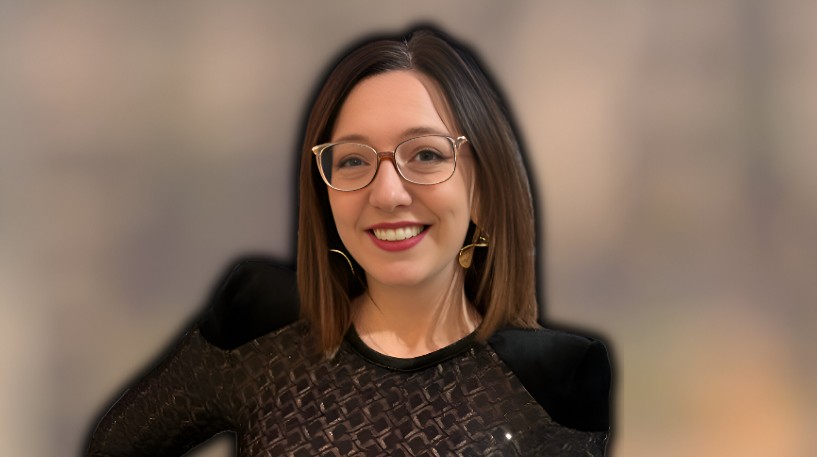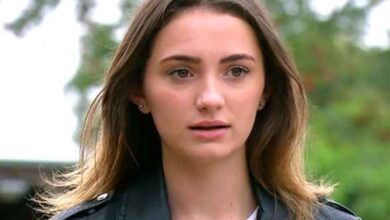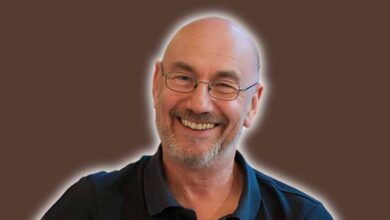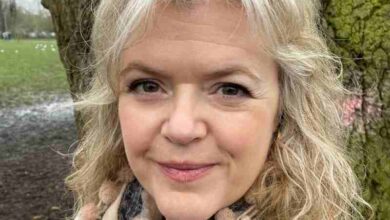Louise Burton – Emmy-Winning Sound Editor Redefining the Audio Landscape

In the world of film and television, where visuals often steal the spotlight, it is the sound that breathes life into each frame. One of the most influential figures shaping the modern soundscape behind the scenes is Louise Burton. A British sound and music editor whose work has captivated global audiences, Burton’s career is an inspiring blend of artistic precision, technical mastery, and a relentless pursuit of excellence. Her journey from a budding technician to an Emmy-winning professional is not only a testament to her dedication but also an inspiring story for anyone aspiring to make an impact in the creative industries.
Early Passion and Foundations in Sound
Louise Burton’s interest in sound design began early, rooted in a fascination with how audio could emotionally transform moving images. Unlike many traditional paths into film, she honed her craft by focusing on the intricate details of audio storytelling. Her formal training at the National Film and Television School (NFTS) between 2016 and 2018 gave her a strong foundation in dialogue editing, foley, and mixing. It was here that she began to develop her signature approach to sound: precise, immersive, and deeply emotional.
During her time at NFTS, she collaborated with other emerging creatives, crafting short films and student projects that demanded innovation and resourcefulness. It was also where she encountered many of the industry-standard tools and practices that would later define her professional work.
First Steps into the Professional World
Louise Burton’s breakout opportunity came when she worked as a Sound Assistant on the critically acclaimed Bohemian Rhapsody in 2018. The film’s intricate mix of music, live performance, and dramatic storytelling offered an ideal training ground. Although Burton’s role was behind the curtain, her contributions were integral to the film’s auditory success.
This project marked the beginning of a steady rise. Over the following years, she continued to build her portfolio, contributing to a range of genres from period dramas to edgy modern thrillers. With each credit, her reputation for excellence grew, earning her the respect of peers and professionals alike.
Defining Projects and Career Milestones
One of the key hallmarks of Louise Burton’s career is her work on high-profile and technically demanding projects. Notable among them is Moonage Daydream, a 2022 cinematic documentary that explores the life and legacy of David Bowie. Burton worked as part of the sound team responsible for crafting the film’s immersive audio experience, which combined archival music, interviews, and narrative sequences in a wholly unique style.
Her work on this film didn’t just win audience praise — it earned critical recognition. In 2023, Burton received an Emmy Award for Outstanding Sound Editing in a Nonfiction or Reality Programme. The accolade cemented her position among the elite sound editors in the global film and television industry.
Other major credits include Saltburn, The Northman, The Quiet Girl, and television hits like The Devil’s Hour, Douglas Is Cancelled, and even the crime procedural favourite Line of Duty. Across these projects, Burton demonstrated an uncanny ability to adapt her approach to suit the tone and demands of each production, whether it required subtle ambient design or dramatic musical arrangements.
Techniques and Creative Philosophy
What sets Louise Burton apart from others in the field is her philosophical approach to sound. She sees it not as an auxiliary element but as a vital narrative tool. Burton’s editing decisions are always driven by story – every sound is meticulously placed to evoke emotion, support character development, or amplify atmosphere.
She’s particularly known for her finesse in dialogue and ADR (Automated Dialogue Replacement) editing. Her ability to seamlessly blend recorded lines with the surrounding sound environment often results in a polished and lifelike auditory experience that never distracts from the visual content.
Additionally, Burton is a strong advocate for a collaborative process. She often works closely with directors, composers, and other editors to ensure a unified sonic vision. This dedication to teamwork is one reason her soundtracks feel so integrated and emotionally resonant.
Mentorship and Industry Contribution
Beyond her hands-on work, Louise Burton has also made a significant impact through mentoring and industry outreach. As a visiting tutor at her alma mater, NFTS, she contributes to the next generation of sound designers, offering guidance on everything from technical skills to navigating the professional landscape.
She is also an active member of several prestigious industry bodies including MPSE (Motion Picture Sound Editors), AMPS (Association of Motion Picture Sound), BAFTA, and the Television Academy. These memberships not only reflect her stature in the industry but also her commitment to maintaining high standards and ethical practice within her field.
Importantly, she is also involved in diversity and inclusion initiatives, advocating for broader representation in sound editing, an area historically underrepresented by women and minority voices.
Challenges in the Audio Industry
While Burton’s journey has been one of success, it is not without its challenges. The world of sound editing is often underappreciated in mainstream conversations around film production. Editors like Burton work long hours in high-pressure environments, juggling technical limitations with creative demands. The evolving nature of audio technology also requires constant learning and adaptability.
Nonetheless, Burton has managed to carve out a path that blends artistry with industry requirements. Her willingness to embrace new techniques while respecting traditional principles is a model that aspiring editors would do well to emulate.
The Impact of Moonage Daydream
Among all her projects, Moonage Daydream holds a special place. The film’s unique format – part concert, part documentary, part visual poem – required an unconventional approach to sound. Burton, along with her collaborators, crafted an auditory experience that didn’t just accompany the film but elevated it to a new level.
From layering Bowie’s live recordings with atmospheric overlays to threading dialogue through a mix of abstract sequences, the sound design became a character in its own right. The Emmy win was a recognition not just of technical skill but of artistic daring – a celebration of what is possible when sound is treated as a narrative force.
Looking to the Future
As of now, Louise Burton shows no signs of slowing down. With a growing list of high-profile credits, industry recognition, and mentoring roles, she is not only building her legacy but also shaping the future of sound editing itself.
She continues to work on diverse projects, including both large-scale productions and intimate indie films, bringing the same level of detail and passion to each. With the film and television industry increasingly embracing immersive sound formats and streaming platforms investing in high-quality content, the demand for experts like Burton is only set to grow.
Conclusion: A Sound Pioneer of Her Generation
Louise Burton is more than an editor – she is a storyteller whose medium is sound. In a field where excellence is often invisible, her work resonates loudly, influencing how stories are heard and felt. Her contributions to film and television are not just technical achievements; they are emotional experiences that deepen the audience’s connection to the narrative.
Through talent, perseverance, and a genuine love for her craft, Burton has redefined what it means to be a sound editor in the modern age. Whether it’s the subtle rustle of leaves in a romantic drama or the pulsating energy of a musical documentary, her fingerprints are all over the audio world — shaping, elevating, and inspiring with every edit.



